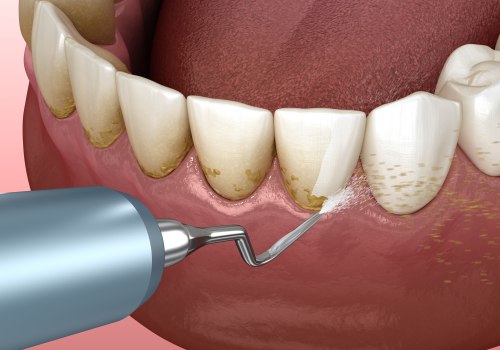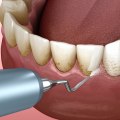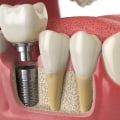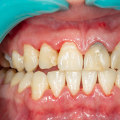Periodontitis (per-e-o-don-tie-tis), also known as gum disease, is a serious gum infection that can cause damage to the soft tissue around the teeth. Symptoms of periodontal disease include swollen, red, and tender gums, receding gums, and teeth that appear longer. Pain when consuming hot, cold, or sweet foods or drinks is one of the most notable signs of tooth sensitivity. Additionally, pain when biting or chewing can occur regardless of the temperature of the food.
Gum recession is the loss of gum tissue around the tooth, exposing the root and leaving the teeth at risk of decay, infection and loss. Periodontal pockets can form when the progression of gum disease causes deeper than normal spaces around the teeth. Dentin hypersensitivity may be due to exposure of tooth roots and to fine tooth enamel. Genetics and other health-related factors can influence how our bodies respond to periodontal disease and treatment methods. Chronic periodontitis is the most advanced form of the disease and progresses relatively slowly in most people.
Plaque is a sticky substance that contains bacteria and can cause gingivitis if not removed from teeth. We offer personalized treatments to stop periodontal disease and even reverse some of the damage it causes. The best way to prevent periodontitis is to get into the habit of taking good care of your mouth and teeth. Your dentist can perform a thorough dental exam to check your gum health and can refer you to a periodontist if necessary.
We offer a full range of periodontal care, from non-invasive therapies to more advanced surgical procedures. Periodontitis is linked to respiratory diseases, rheumatoid arthritis, coronary artery disease, premature birth and low birth weight, and problems controlling blood sugar in diabetes. To help prevent periodontitis or improve your chances of successful treatment, brush your teeth at least twice a day, floss every day, and get regular dental checkups. As a Chicago-based educational and research institution, UIC is uniquely positioned to lead the way in periodontal disease care and research.








